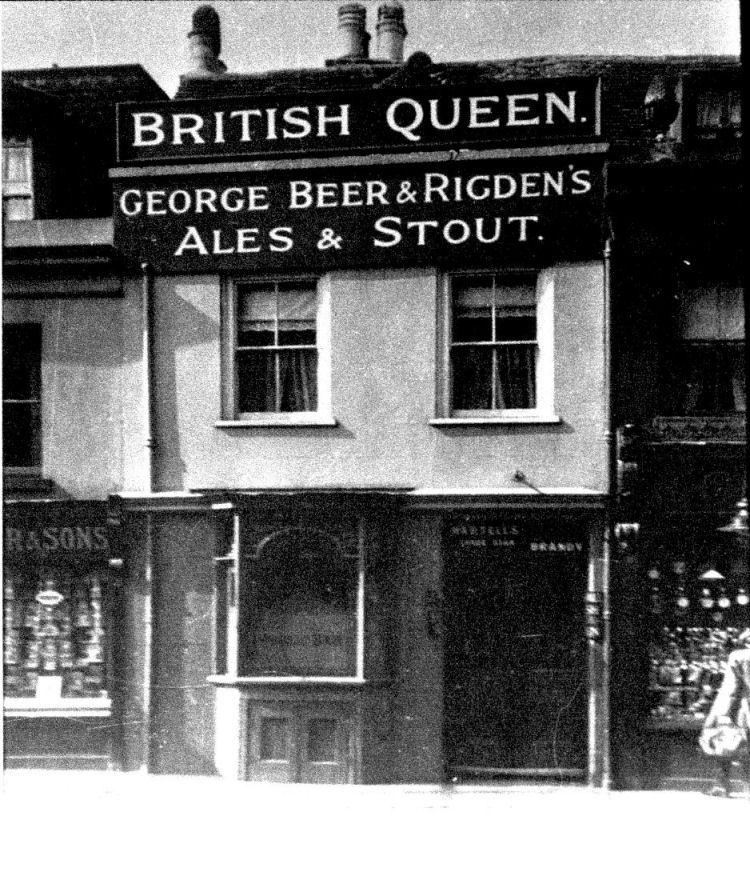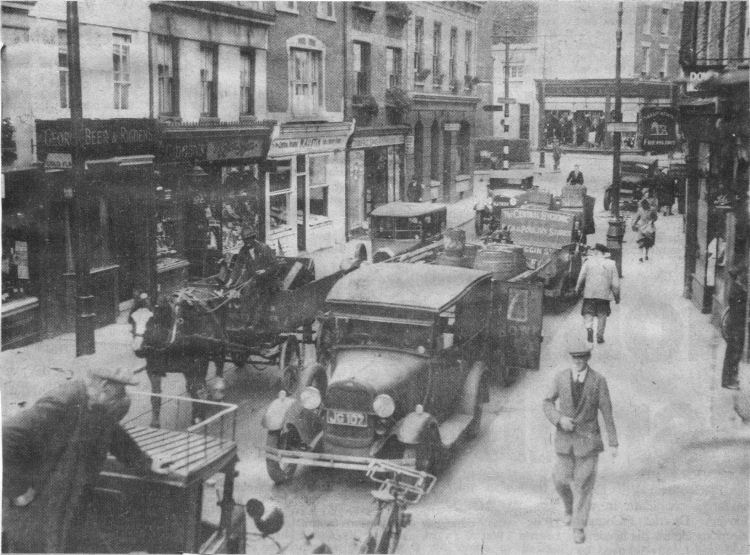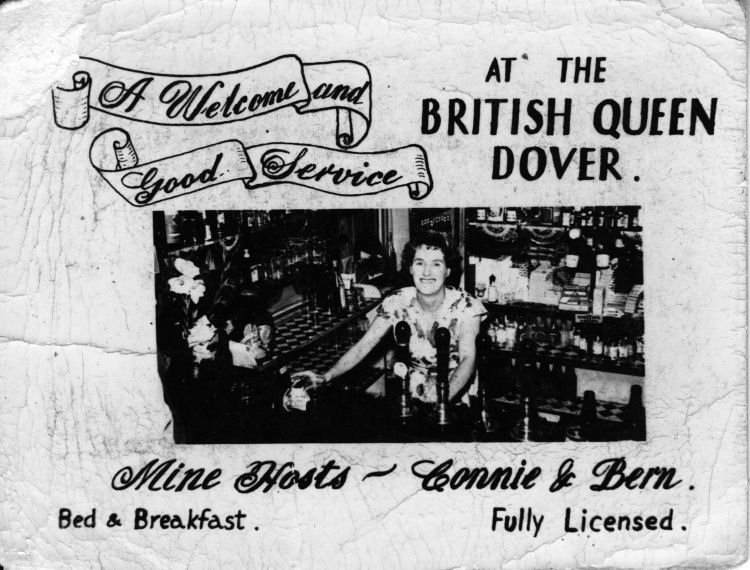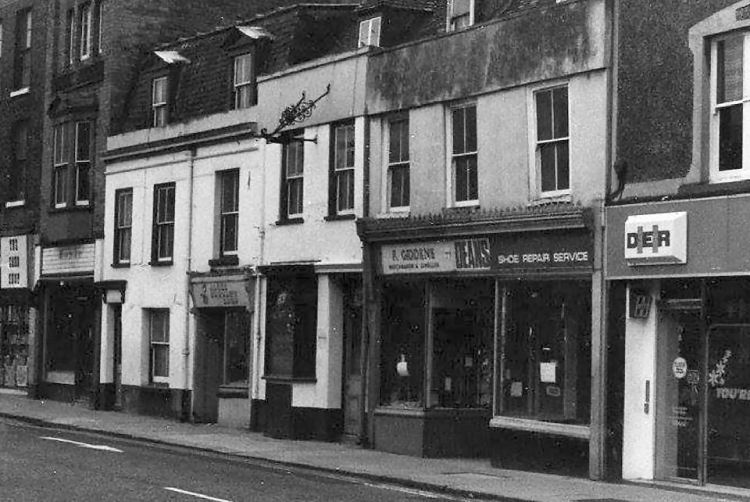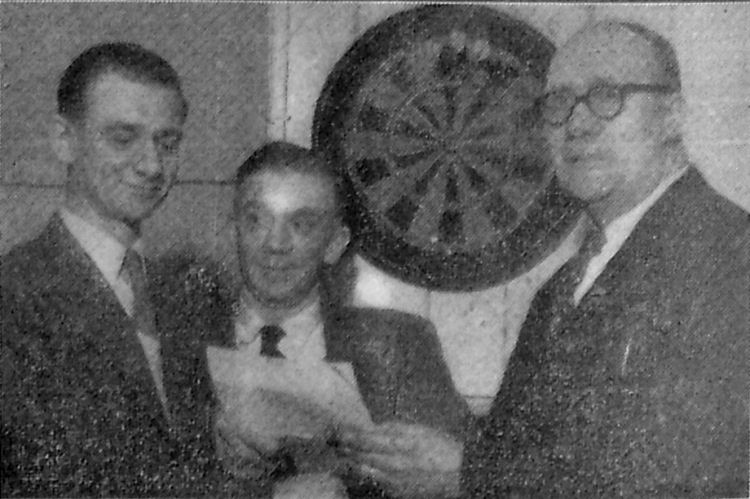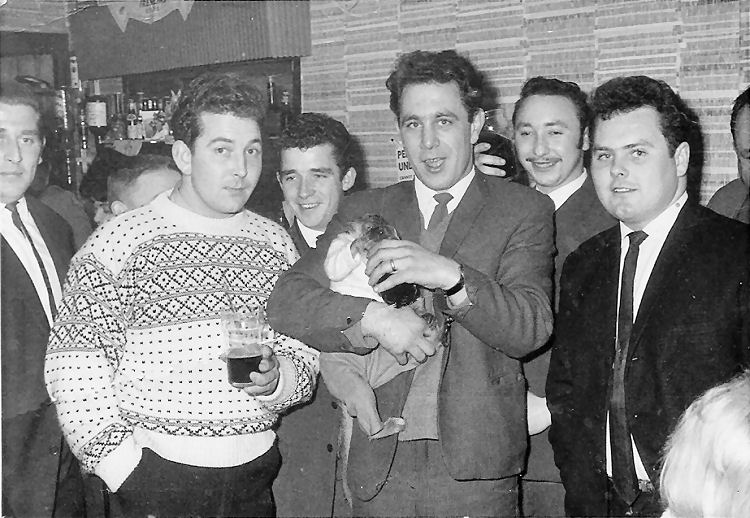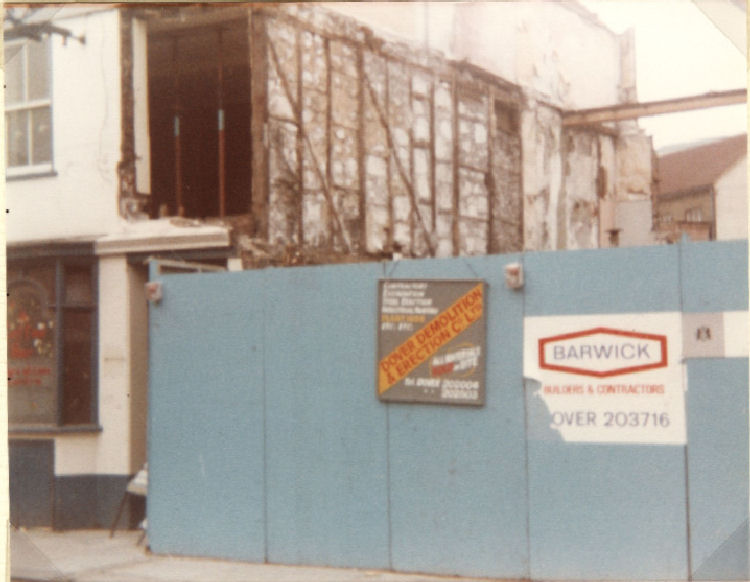|
From the Dover Express and East Kent News, Friday,
27 March, 1925.
Price 1½d.
ALLEGED DRINKING OUT OF HOURS
At the Dover police Court on Monday, before Messrs W. J. Palmer, S.
Lewis, C. E. Beaufoy and W. Hollis.
Edward John Wood, 65, Clarendon Street, was charged with unlawfully
consuming intoxicating liquors on licensed premises; and Dick Wakefield,
licensee of the "British Queen," was charged with aiding and abetting
him in the offence.
Mr. Rutley Mowll defended, and pleaded not guilty.
Mr. Taylor prosecuted and outlined the facts of the case.
P.S. Merricks said on March 6th, in company with P.C. Pollington, he
entered the "British Queen" public house by the back door at 4.05 p.m.,
finding the back door standing wide open. they went into the passage and
heard voices in the smoking room. He tried the door, found it unlocked,
and they entered the room. Defendant Wood had a pint glass to his lips,
and was drinking apparently alcoholic liquor. Witness said to him, "What
are you doing here;" and he replied, "I have just finished my pint of
beer." He then added, "I bought it before half past two." Mrs. Wakefield
was present and drew her attention to Wood's remark, and she said he was
served with the drink before 2.30 p.m. the defendant Wakefield then came
in. Witness cautioned him, told him what he had seen and what had been
said. he replied, "Quite right; there has been no beer served here in
this room since 2.30." Witness told him he would report the matter.
In reply to Mr. Taylor, witness said that defendant was just
finishing the drink.
Mr. Mowll: Did you actually see what was in the glass?
Yes, sir.
Did you taste it?
No, sir; there was nothing to taste.
Mr. Mowll: Then you could not have seen it. (Laughter.)
P.C. Pollington said he was present with P.S. Merricks, and he
corroborated his evidence.
Mr. Mowll questioned whether there was any evidence against
Wakefield, as he was not present. There was some evidence against Wood
on account of his remarks.
The Bench decided there was no evidence against Wakefield.
Mr. Mowll said that the law was that no alcoholic drink must be sold
between 2.30 and 6 p.m., and neither must a customer consume what he had
previously bought. There was no objection to a customer being on the
premises. Public houses might be open all day and night, and
non-alcoholic liquors could be supplied at all hours of the day and
night, and a licensee was entitled to treat his friends during
prohibited hours and was entitled to supply persons who were residents
in the house, although that did not apply to this case.
Dick Wakefield said he had been a licensed victualler in Dover for 20
years, and this had been the first summons he had ever had. On March 6th
Wood came in at 2.05 p.m. he knew him well, said he was a friend of his
since a boy. he supplied Wood as a customer during permitted hours. When
they closed he invited Wood to come in and have a drink. He "stood" him
a glass of beer, and they sat down together with his (Wakefield's) wife
in the smoke room and made arrangements to go out together that
evening. At about 3.30 p.m. the defendant said he was going to have a
half hour's nap.
Mr. Mowll: Nap! That is an unfortunate word. I suppose you mean
sleep, not a game of cards. (Laughter.)
Continuing, the defendant said on going through he met the Police.
There was only a speck on the glass when the Police came in. The drink
that Wood had when the Police arrived was the drink he had treated him
to. Wood remained and had tea with them, and then went out in the
evening.
Mr. Taylor: You often give Wood drinks?
Yes - and he is not the only one - and anyone else who wants one.
Mr. Taylor: He is rather fortunate, is he not?
He is, absolutely.
Mr. Taylor: have you ever given his tea before?
No, I cannot afford to give him too much.
Mr. Taylor: On this occasion you particularly wanted him to be a
friend?
Not particularly, because he is a friend.
Edward John Wood corroborated Wakefield's evidence.
Mr. Mowll said that was the case for the defence, and if those facts
were true the defendants were entitled to be acquitted. The case Corbett
v. Hague was cited in such cases, and the editor of "Patterson's
Licensing Act" noted in reference to it that a person holding the
position of a customer could not become a friend. They would find,
however, on reading the judgement of the case that the view was quite
wrong. It simply came down to the point that if they were satisfied that
the evidence that had been given was true, both were entitled to be
acquitted, and Wakefield was quite entitled to give his friend liquor.
No doubt the Magistrates were thinking of the Police
evidence, in which Wood was said to have said, "I bought it." he could
not get away from that, and it was for them to say whether they believed
the evidence or whether they thought that the statement made to the
Police on the spur of the moment was more correct.
The Bench retired to consider the case. They were away some minutes,
and on their return the Chairman said that they believed the statement
of Wood to the Sergeant was correct, and that the liquor was bought
before 2.30 p.m. They had taken into consideration Wakefield's previous
good character, and they had decided to dismiss the summons against him
on payment of costs. Wood would also be dismissed on payment of costs.
|
